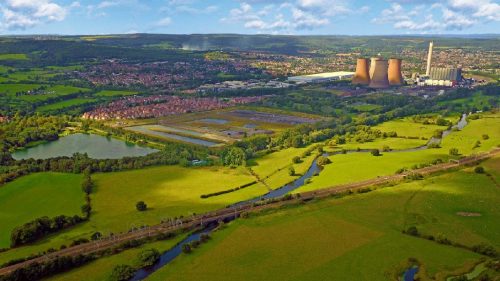Region lands £3m investment for low energy projects

Three low-carbon energy projects in the West Midlands are to receive almost £3m in new government funding.
The funding, which will attract match funding, will support the schemes in Staffordshire, Sandwell and Coventry and form part of a wider investment worth £90m into nine projects across the country.
Coventry
In Coventry, the Regional Energy System Operator project (RESO) will help the city to decarbonise and keep energy costs down.
By creating a local energy market, Coventry residents will be able to benefit from reduced energy prices, increased jobs and investment, and clean growth.
Working with Coventry City Council, the project explores ways of generating and storing low-carbon energy on a city-wide scale, such as harnessing unused energy in electric vehicles, as well as integrating large scale, clean energy assets.
This project, which is being match-funded by global company and project partner Enzen, will build on an approach developed and tested at WMG, the University of Warwick, to design a system for the whole of the city.
This moves away from the traditional approach of large power stations, which is costly and inefficient.
If successful it could save money by reducing the need for expensive infrastructure upgrades and be replicated across other cities and towns. Plans are being drawn up to design similar systems for east Birmingham and north Solihull, home to nearly 300,000 people.
Rugeley
The WMCA is also involved in a second project to bring smart energy to Rugeley and transform the site of the iconic former Rugeley Power Station into an area of low-carbon housing.
More than 2,000 new homes and other eco-friendly buildings are planned for the site which is hoped to set the standard for similar projects across the UK to transition to zero carbon.
Energy Capital is a member of the consortium behind the project, which is led by Engie, the site’s owner.
Sandwell
The third project is in Sandwell, which could be the home to a new smart energy grid which channels waste heat generated by industry to heat homes and businesses and integrates with a smart power grid, supporting modern transport such as electric vehicles.
A study is being conducted in Islington in London to determine if such a system could successfully decarbonise urban heating by considering heat, power and transport together as one energy challenge.
Called Green Smart Community Integrated Energy Systems (GreenSCIES), the system shares heating and cooling between buildings to ensure a balanced energy supply across the network. Excess heat is captured from sources such as office buildings and data centres and the energy is then distributed to homes and business.
The London study will take its findings and apply them to Sandwell, where £35m is potentially being invested into new district energy schemes, to determine if the West Midlands borough could also use this approach to drive down energy costs and carbon emissions.
Andy Street, the Mayor of the West Midlands, said: “As the birthplace of the industrial revolution, the West Midlands has a moral responsibility to lead the fight against climate change.
“A key part of this is going to be our clean growth sector and how we support businesses within the sector to innovate and create the technologies needed to help our region become carbon neutral no later than 2041.
“I am delighted that the Government has recognised the region’s potential to lead the UK in these state-of-the-art carbon neutral technologies, and I am sure these three projects will help make a real difference to the climate change agenda both here in the West Midlands and across the country.”








